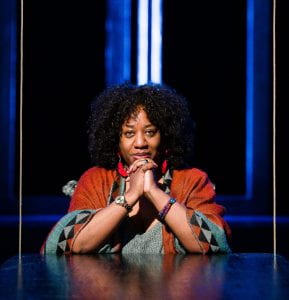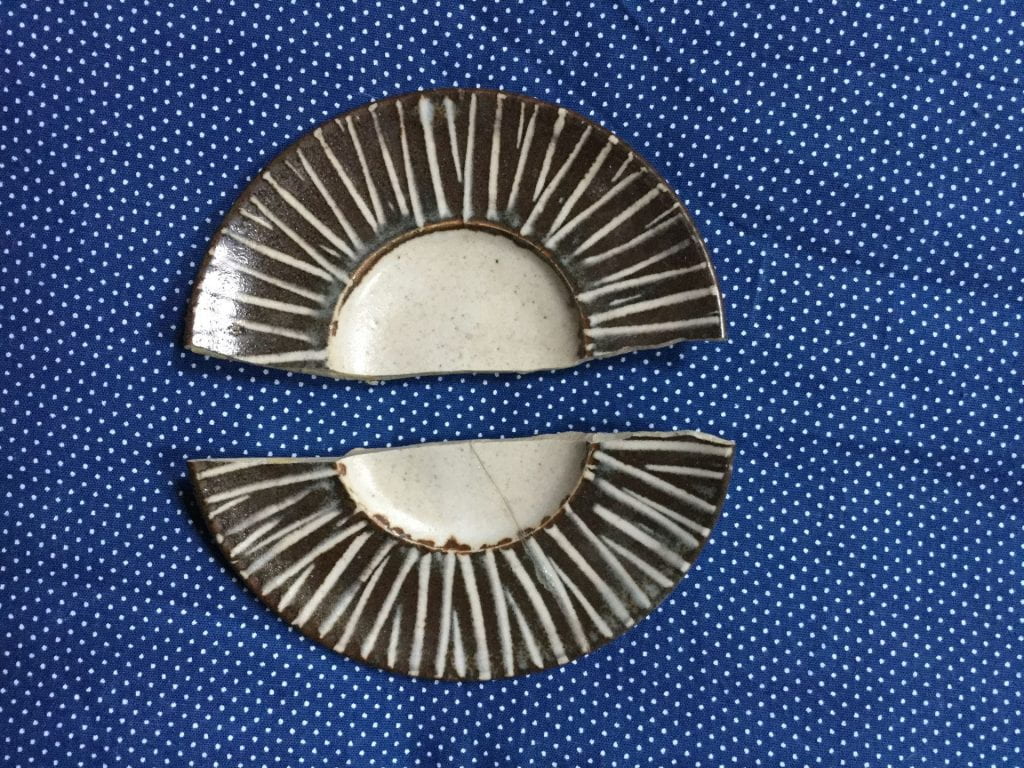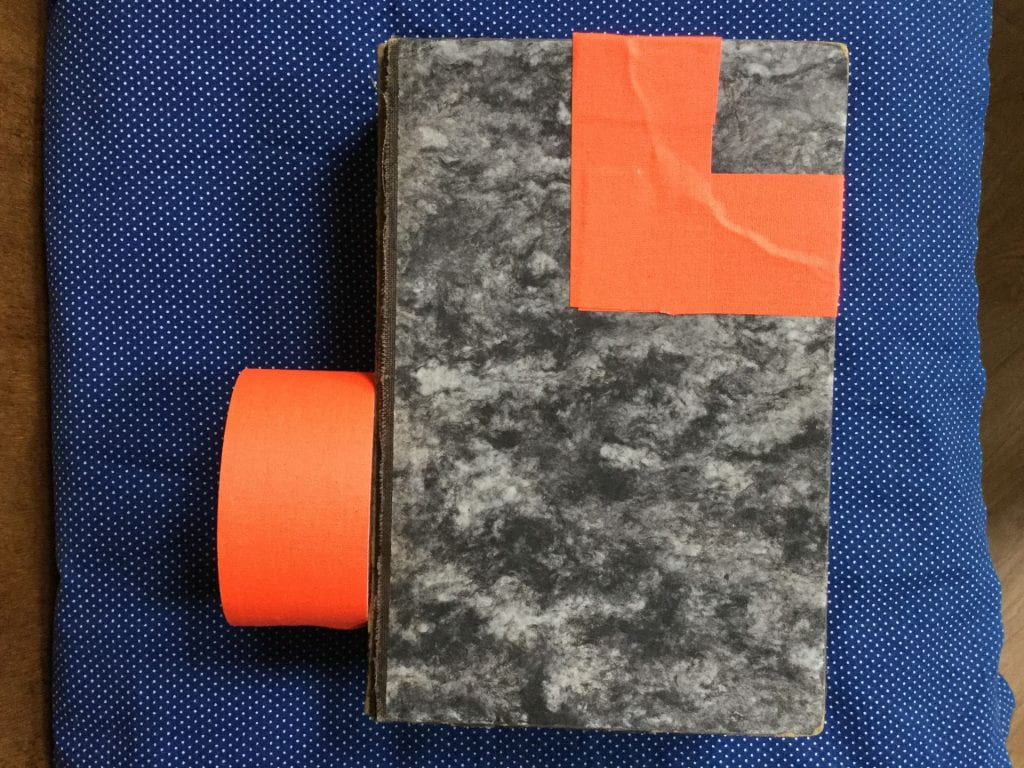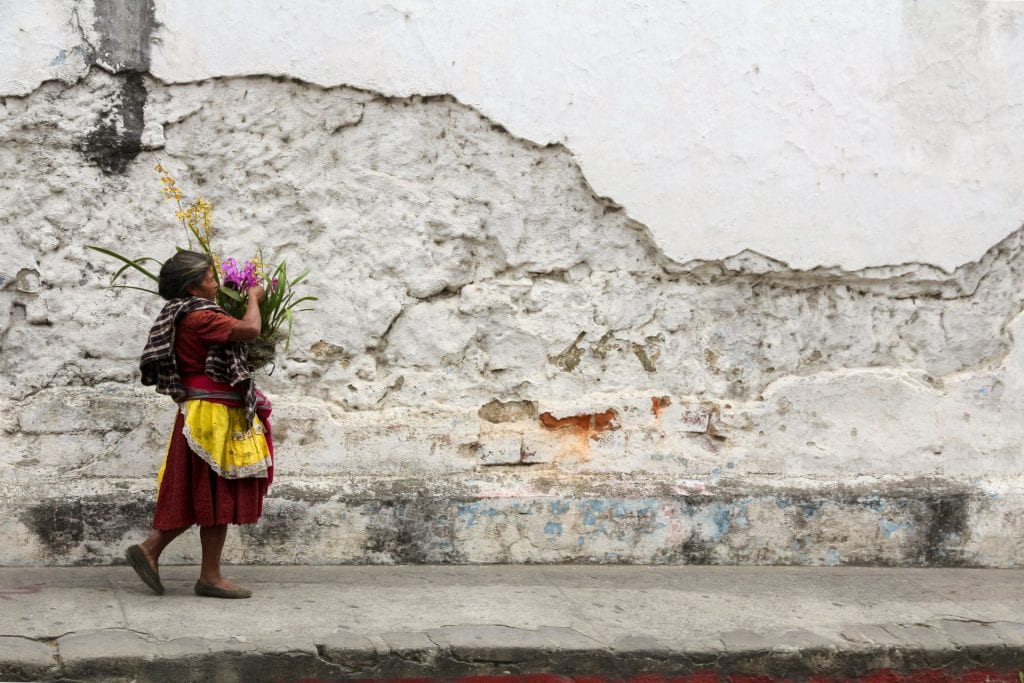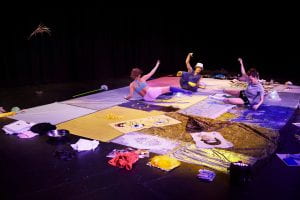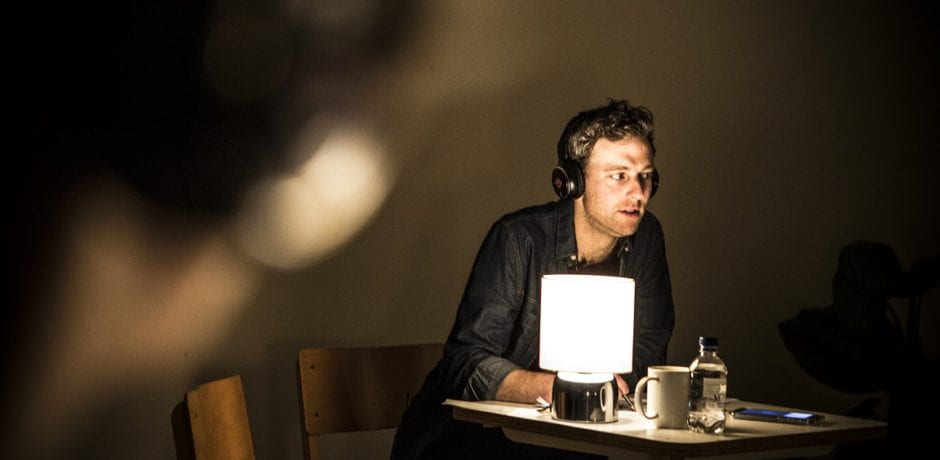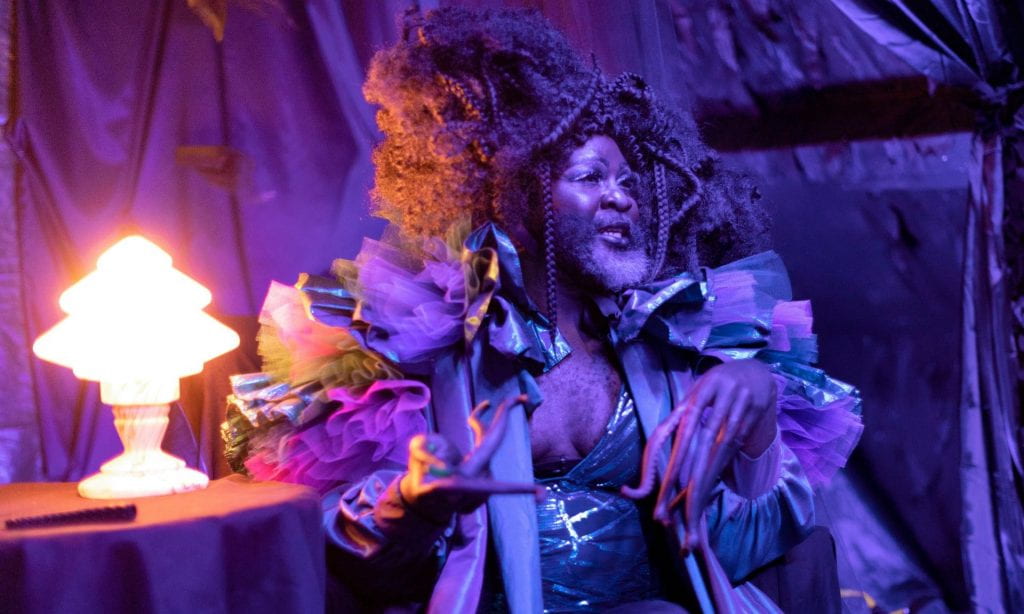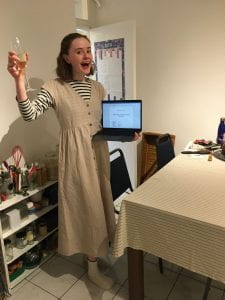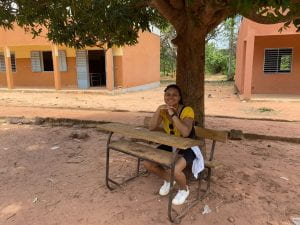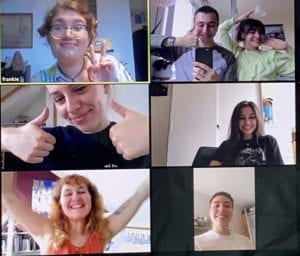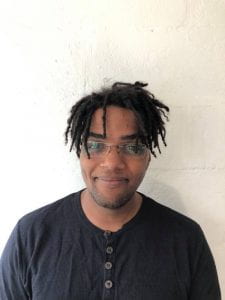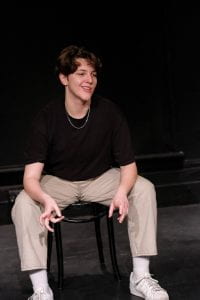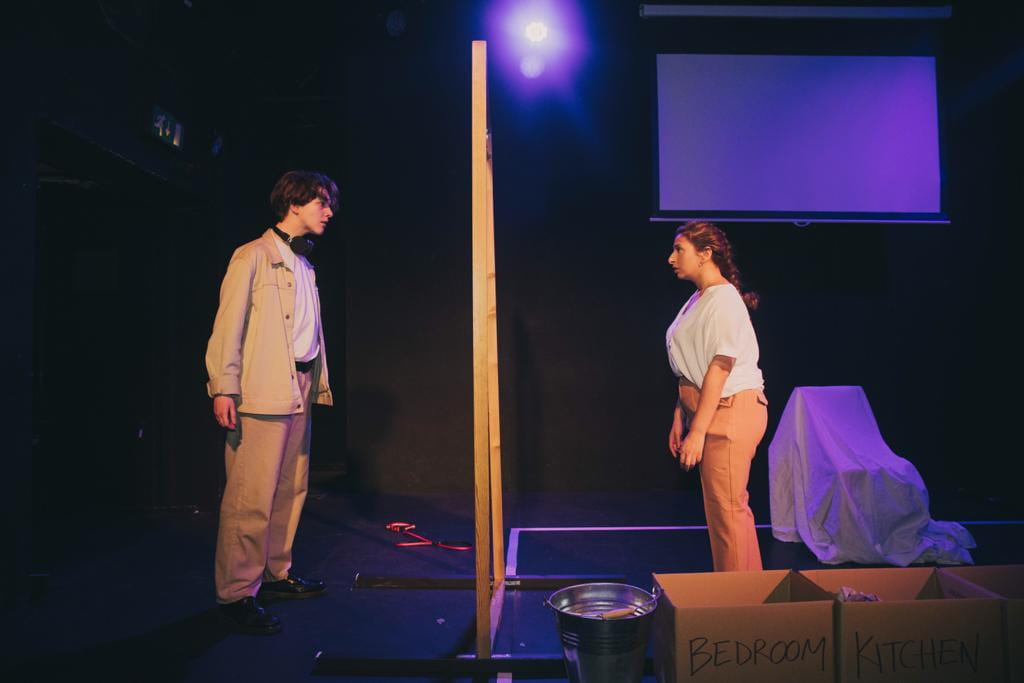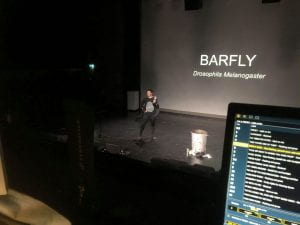Welcome to the inaugural research newsletter of the Department of Theatre and Performance!
Katja Hilevaara
Katja Hilevaara is currently working on a new interdisciplinary project called, The Finch Girl. At the centre of this interdisciplinary research project is a unique archaeological find dating to 17th century Poland.
The skeleton of a young girl was discovered in a limestone cave, and a tiny skull of a chaffinch was found in her mouth. Scientific methods traced the girl’s origin to Finland; testified by her DNA and historical writings depicting Finnish soldiers and their families in that Polish region at the time of the burial.
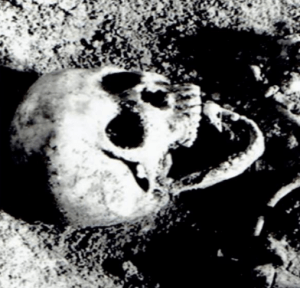
Finnish folklore and its close relationship with forests was used as evidence that could feasibly explain the idea of a ‘soul bird’ being placed in her mouth. However, the results were inconclusive, and this unique burial remains elusive.
The purpose of this project is to bring together a team of artists and scientists to work together, with the aim to discover more about the story. Scientists base the construction of a narrative on the most probable evidence, pieced together from a range of verified sources. Artists, it could be argued, employ imagination and speculation, and invent in the gaps where evidence might not be found.
The project asks: how might these different approaches to storytelling mutually benefit each other? How might we imagine other possibilities and uncover further so-called scientific data through conversation and creative exploration? How might the narrative uncovered so far be filled-out and re-told? The evidence questioned and verified in new ways?
The Finch Girl
Clare Finburgh Delijani
Clare Finburgh Delijani is working on two new books. A New History of Theatre in France, a twenty-two chapter volume she edited for Cambridge University Press, is now in press. Claire recently presented on the book at the University of Rouen, and shall be giving a talk on it at Sorbonne University in the spring.
Theatre in Fr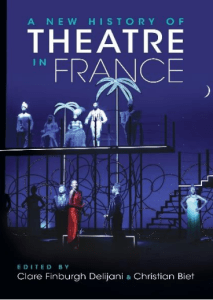 ance was the first in Europe to be written in the vernacular as opposed to Latin. It has provided the English language with the medieval word farce, the early-modern word role, and the modern term mise en scène. Molière is single handedly responsible for launching European-style playwriting in North Africa. Today, it’s only a slight exaggeration to say that it’s harder to get tickets for the Festival d’Avignon, one of the world’s largest theatre festivals, than for the Rolling Stones’ farewell tour.
ance was the first in Europe to be written in the vernacular as opposed to Latin. It has provided the English language with the medieval word farce, the early-modern word role, and the modern term mise en scène. Molière is single handedly responsible for launching European-style playwriting in North Africa. Today, it’s only a slight exaggeration to say that it’s harder to get tickets for the Festival d’Avignon, one of the world’s largest theatre festivals, than for the Rolling Stones’ farewell tour.
Containing chapters by globally eminent theatre experts, many of whom will be read in English for the first time, this collaborative history testifies to the central part theatre has played for over a thousand years in both French culture and world culture. Crucially, too, it places centre stage the genders, ethnicities and classes that have had to wait in the wings of theatres, and of theatre criticism.
The second book is linked to a three-year Leverhulme Major Research Fellowship: A History of Postcolonial Theatre in France: Spectres of Empire.
The book tells, for the first time, the hidden history of theatre in France about, and by, people fromits former colonies; and the artistic conservatism and institutional restrictions they have surmounted. It celebrates artists who have, from the onset of decolonisation in the 1950s to today, contributed crucially to debates around immigration and nationalism by using theatre’s unique capacity to present on stage how meaning is made from words and images. Their works, often performed by postcolonial subjects themselves, enable audiences to recognise how racialized identities are constructed from language and images, and can be reshaped to foster new ways of understanding our postcolonial world.
Cass Fleming
The Chekhov Collective, founded and co-directed by Cass Fleming, has recently launched its new website.
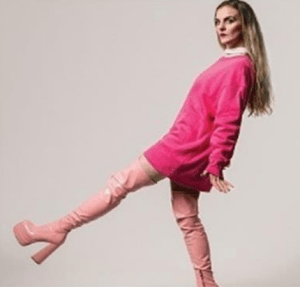
The website continues to be an important repository showcasing a range of activities and resources rooted in, or in dialogue with, Michael Chekhov’s technique.
Cass was also asked to do a filmed interview for Faculti earlier this year, exploring her work on Suzanne Bing.
The Chekhov Collective
Cass’ Faculti Interview
Danny Braverman
Danny Braverman is currently working on a new musical, Game 6, investigating how neurodiversity can inform dramaturgy in form, content, and process. The show is based on the life of 1972 World Chess Champion Bobby Fischer, exploring his autism, his Jewishness, and the backdrop of the Cold War.
On 24 February 2023, a colloquium was held at Theatro Technis in King’s Cross for an audience of performance makers.
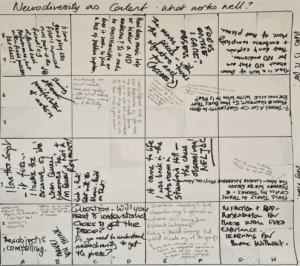 A team of disabled and neurodiverse performers presented a rehearsed reading of a segment of the show, followed by contributions from a panel of neurodiverse artists: designer Emma Melati Wee, choreographer Emily Orme and director Matthew Xia.
A team of disabled and neurodiverse performers presented a rehearsed reading of a segment of the show, followed by contributions from a panel of neurodiverse artists: designer Emma Melati Wee, choreographer Emily Orme and director Matthew Xia.
Using chessboard grids as a mid-mapping tool, Emma led a conversation on the investigation. A video of the event, including contributions from the audience, is being put together for the New Year.
Goldsmiths’ involvement included producer-alumnus Tom Powell, and volunteering support from PhD candidate Hayley Wen, alumna Isobel Ewart, Musical Theatre Year 3 Ida Thorp, and Drama and Theatre Arts Year 3 Sungwon Jo on his Work Placement module.
Alongside the development of the script and songs, Danny and the team want to run community workshops with chess clubs and families with autistic members as part of audience development. Although it’s early days, it is hoped the project will contribute to exploring how Goldsmiths can develop as an incubator for new musicals.
Adam Alston
Adam Alston published a new book in October 2023, Staging Decadence: Contemporary Theatre and the Ends of Capitalism (Bloomsbury 2023), alongside a book chapter on ‘Decadence and the Antitheatrical Prejudice’ in a new collection on 1890s’ literature and culture.
He also has an anthology forthcoming with Bloomsbury in January – Decadent Plays: 1890 – 1930 (Bloomsbury 2024) – whichhe co-edited with Professor Jane Desmarais. These are the latest publications to come out of the Staging Decadence project, which developed from a two-year fellowship funded by the Arts and Humanities Research Council into an ongoing platform for showcasing research and artistic practice concerned with the study, design, embodiment, and enactment of ‘decadence’ in all of its spectacular and provocative glory.
Key to this project has been Adam’s curation of live events and workshops, which this year included a residency at Goldsmiths with the trans artist Nando Messias, and a one-off event at Queen Mary, University of London – Staging Decadence: Dress to Kill – 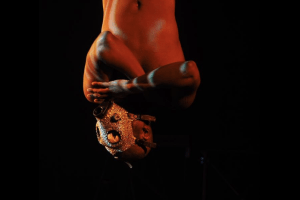 – that featured live performances from Sadie Sinner, Miss HerNia, and Hasard Le Sin, a performance lecture by Adam, an exhibition of decadent costume by Julia Bardsley, and specially-commissioned screenings by jaamil olawale kosoko, Toco Nikaido, and Angel Rose.
– that featured live performances from Sadie Sinner, Miss HerNia, and Hasard Le Sin, a performance lecture by Adam, an exhibition of decadent costume by Julia Bardsley, and specially-commissioned screenings by jaamil olawale kosoko, Toco Nikaido, and Angel Rose.
Check out the project blog for the latest articles and interviews, including an interview with the self-proclaimed ‘Queen of Filth’ Rose Wood, as well as the film and events pages, which are regularly updated with resources and updates: www.stagingdecadence.com
Fiona Graham
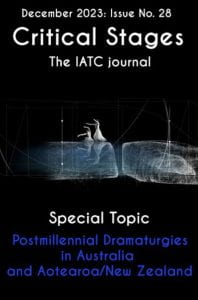
Fiona Graham is currently working on a new book project – Becoming Dramaturg: Developing an Ethical and Expanded Practice – which will be out with Bloomsbury in 2025.
For the last year Fiona Graham has been working as a joint editor on this journal. There is something here for everyone: Critical Stages: Postmillennial Dramaturgies in Australia and Aotearoa / New Zealand, journal
www.critical-stages.org (issue #28)
She is also acting as joint editor for Critical Stages: Australasian Dramaturgy, which is out this month, and continues her work as dramaturg with award winning Alleyne Dance Company. Their current project, Far From Home, is touring internationally until 2025.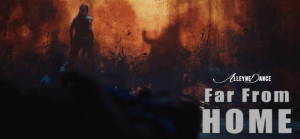
Gabriel Díaz
Gabriel Díaz is currently pursuing a PhD in Theatre and Performance at Goldsmiths, and is also the co-creator of the Teatro Apátrida company.
He has recently been working on some new shows: Transits (2023) at La Nau Ivanow creation factory in Barcelona, Spain, and Medium: Chile Estalla a la Distancia (Medium: Chile explodes in the distance), which captures the voices of witnesses to the social protests in Chile since 2019.
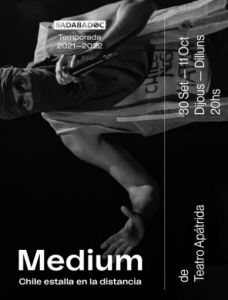 The play, featuring five Chilean artists residing in Europe, aims to bridge the distance and reconnect with their native land. Through authentic testimonies and documents, the production provides a closeup of Latin American resistance and its worldwide impact.
The play, featuring five Chilean artists residing in Europe, aims to bridge the distance and reconnect with their native land. Through authentic testimonies and documents, the production provides a closeup of Latin American resistance and its worldwide impact.
As part of the inaugural Rutas Iberoamericanas project, Medium has been chosen to represent Chile in Spain. This initiative seeks to forge cultural ties and enhance the profile of Latin American performing arts across Europe.
In February 2024, the company is set to tour seven renowned venues in cities including Valencia, Bilbao, Madrid, Mallorca, Vigo, and Barcelona, in a cultural exchange bolstered by partnerships with Chilean and Argentine institutions.
Teatro Apátrida
Göze Saner
In September this year, Göze Saner reunited the Quick and the Dead for a week-long intensive period of practice research.
Founded in 2005, the Quick and the Dead are the seven-strong practice research collective who collaborated with Alison Hodge on developing the performer training practice documented in Core Training and the Relational Actor (Hodge, 2013) which has been hailed as a pioneering feminist approach and a ‘critical acting pedagogy’ (Peck 2020).
Their training is characterised by its emphasis on relationality. Focusing on the space between actors, it nourishes care, touch, sensuality and listening as opposed to individual virtuosity – in alignment with other feminist, queer, decolonial, anti-racist, anti-ableist and activist approaches to pedagogy. Re-encountering each other anew ten years on, after injuries, illnesses, marriages, divorces, cross-continental relocations, births and deaths, including Hodge’s passing in 2019, they found the practice instantly available and tangibly present.
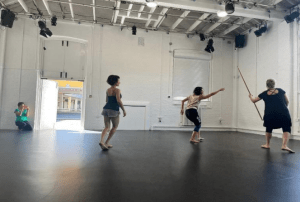
From their new situated realities, new (and older) bodies, loss and grief, they experienced the practice as a space of pleasure, hope and connection. They confirmed that the ethics of the work, ‘to celebrate the [] uniqueness and the particularity of each encounter’, (Hodge 2013, 27), still held and made it possible not only to train meaningfully together after such a long period of separation, but also to take the work further with new inquiries.
They will reflect on this period of research at the upcoming International Platform for Performer Training in Finland, and address the pedagogy of the ‘relational actor’ and the principles of ‘attentiveness’, ‘embodied listening’, and ‘care-taking’, through the vocabulary of radical care (Hobart and Kneese 2020).
Rachael Newberry
Rachael Newberry has recently published a new chapter titled ‘Waiting in the Wings: The Economics and Ethereality of Theatrical Space in Angela Carter’s Nights at the Circus’.
In this chapter she interrogates a range of theatrical spaces navigated by Angela Carter in Nights at the Circus (1984), a theatre novel which explores the intersections between sexual, transactional, and gendered performativity.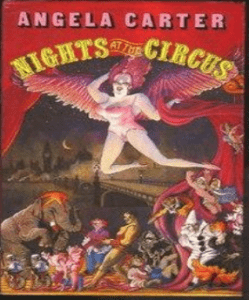
Engaging with Foucault’s work on heterotopic space, Baudrillard’s engagement with the simulacra, and more recent critical scholarly analysis examining the politics of gender and space as performance, Newberry examines themes of bought pleasure and the commodification of performance; the relationship between authenticity, power and public and private space; and where we might seek and find elements of the real in a novel that blurs historical and biographical ‘truth’.How might the audience, the reader, and the scholar, search for, discover, and dismantle the illusions that Fevvers, and Carter, sets up for us?
Shimeng Wang
Shimeng Wang is a fourth-year Ph.D. student in Theatre and Performance working on the puppet animation of the Quay brothers. This year, they have presented at two notable conferences: ‘Lived Experience in Theory and Practice’, organized by the British Society for Phenomenology (Manchester Metropolitan University), and ‘A Screen or a Wi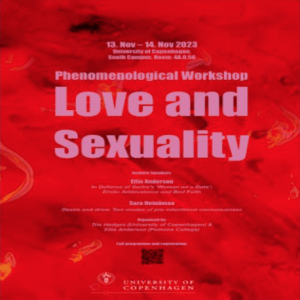 ndow? On Defining “Lived Experience” in Cinema’ in August this year.
ndow? On Defining “Lived Experience” in Cinema’ in August this year.
Wang also participated in a workshop titled ‘Love and Sexuality’, which was held by the Centre for Subjectivity Research at the University of Copenhagen in Denmark in November. Their presentation was titled, ‘Face and Hands: A Phenomenological Reading of Representation in Amateur Lesbian Porn’
British Society for Phenomenology
Love and Sexuality
Molly McPhee
Since joining Theatre and Performance last February, Molly McPhee has been developing several projects. Her newest research, ‘Investigating the civic role of theatres: toward a “Nightingale Theatre” as multi-stakeholder public health intervention’ explores theatres that became inoculation centres and courtrooms during the pandemic, as what the government termed ‘Nightingale’ Courts and Hospitals.
Though now largely disestablished, the Nightingale format illustrates how arts organisations are currently being compelled by the government to co-deliver health and justice provision in a variety of ongoing (and far less overt) modes.
This project has been awarded a Goldsmiths Early Career Researcher Fund grant to work with a multi-disciplinary collective of practitioners and policymakers, as part of an R&D phase to develop a large-scale Wellcome Discovery Award/ AHRC bid. Across 3 workshops in spring 2024, we will explore how Nightingales prompt reclamations of theatres as places for acting ‘otherwise civically’ against seepages of dominant structures predicated on inequities, in ways that embrace the notion of both health and legal systems as inherently fleeting, changing, instable, and therefore, changeable.
Molly is also collaborating with criminologist Jennifer Fleetwood on her Strategic Research funded project working with Clean Break to develop the concept of ‘narrative care’, as a way to challenge the how women with justice experience are called to ‘tell their story’ in stigmatising and disempowering ways.
Her ongoing work with Fuel Theatre was also awarded a £120,000 grant from the National Lottery Heritage Fund and £20,000 grant from National Archives to produce several public engagement projects, including an XR archiving initiative which she is undertaking in partnership with Queen Mary, University of London.
 Over the summer, she collaborated with colleagues in Psychology and Computing, together with Siobhan Davies Dance, to produce the ERC-funded NEUROLIVE experiment ‘Performing and Not Performing, performed by Jia-Yu Corti’ and in November she published a new article, ‘The Letter Cloth: Sensory Modes of the Epistolary in Prison Theatre Practice’ in the journal Humanities.
Over the summer, she collaborated with colleagues in Psychology and Computing, together with Siobhan Davies Dance, to produce the ERC-funded NEUROLIVE experiment ‘Performing and Not Performing, performed by Jia-Yu Corti’ and in November she published a new article, ‘The Letter Cloth: Sensory Modes of the Epistolary in Prison Theatre Practice’ in the journal Humanities.
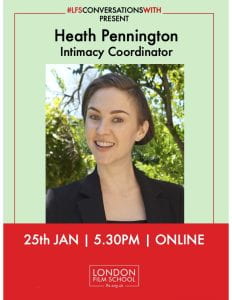 As a certified intimacy coordinator, Heath works at the intersections of theory and practice to investigate how negotiation, bodily autonomy, and oppressions around gender, race, and class play out in consensual interactions.
As a certified intimacy coordinator, Heath works at the intersections of theory and practice to investigate how negotiation, bodily autonomy, and oppressions around gender, race, and class play out in consensual interactions.
 ance was the first in Europe to be written in the vernacular as opposed to Latin. It has provided the English language with the medieval word farce, the early-modern word role, and the modern term mise en scène. Molière is single handedly responsible for launching European-style playwriting in North Africa. Today, it’s only a slight exaggeration to say that it’s harder to get tickets for the Festival d’Avignon, one of the world’s largest theatre festivals, than for the Rolling Stones’ farewell tour.
ance was the first in Europe to be written in the vernacular as opposed to Latin. It has provided the English language with the medieval word farce, the early-modern word role, and the modern term mise en scène. Molière is single handedly responsible for launching European-style playwriting in North Africa. Today, it’s only a slight exaggeration to say that it’s harder to get tickets for the Festival d’Avignon, one of the world’s largest theatre festivals, than for the Rolling Stones’ farewell tour.
 A team of disabled and neurodiverse performers presented a rehearsed reading of a segment of the show, followed by contributions from a panel of neurodiverse artists: designer Emma Melati Wee, choreographer Emily Orme and director Matthew Xia.
A team of disabled and neurodiverse performers presented a rehearsed reading of a segment of the show, followed by contributions from a panel of neurodiverse artists: designer Emma Melati Wee, choreographer Emily Orme and director Matthew Xia. – that featured live performances from Sadie Sinner, Miss HerNia, and Hasard Le Sin, a performance lecture by Adam, an exhibition of decadent costume by Julia Bardsley, and specially-commissioned screenings by jaamil olawale kosoko, Toco Nikaido, and Angel Rose.
– that featured live performances from Sadie Sinner, Miss HerNia, and Hasard Le Sin, a performance lecture by Adam, an exhibition of decadent costume by Julia Bardsley, and specially-commissioned screenings by jaamil olawale kosoko, Toco Nikaido, and Angel Rose.

 The play, featuring five Chilean artists residing in Europe, aims to bridge the distance and reconnect with their native land. Through authentic testimonies and documents, the production provides a closeup of Latin American resistance and its worldwide impact.
The play, featuring five Chilean artists residing in Europe, aims to bridge the distance and reconnect with their native land. Through authentic testimonies and documents, the production provides a closeup of Latin American resistance and its worldwide impact.

 ndow? On Defining “Lived Experience” in Cinema’ in August this year.
ndow? On Defining “Lived Experience” in Cinema’ in August this year. Over the summer, she collaborated with colleagues in Psychology and Computing, together with Siobhan Davies Dance, to produce the ERC-funded
Over the summer, she collaborated with colleagues in Psychology and Computing, together with Siobhan Davies Dance, to produce the ERC-funded 